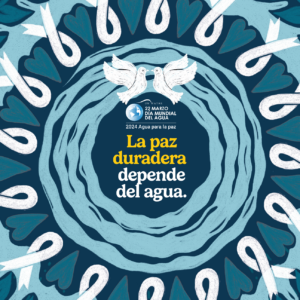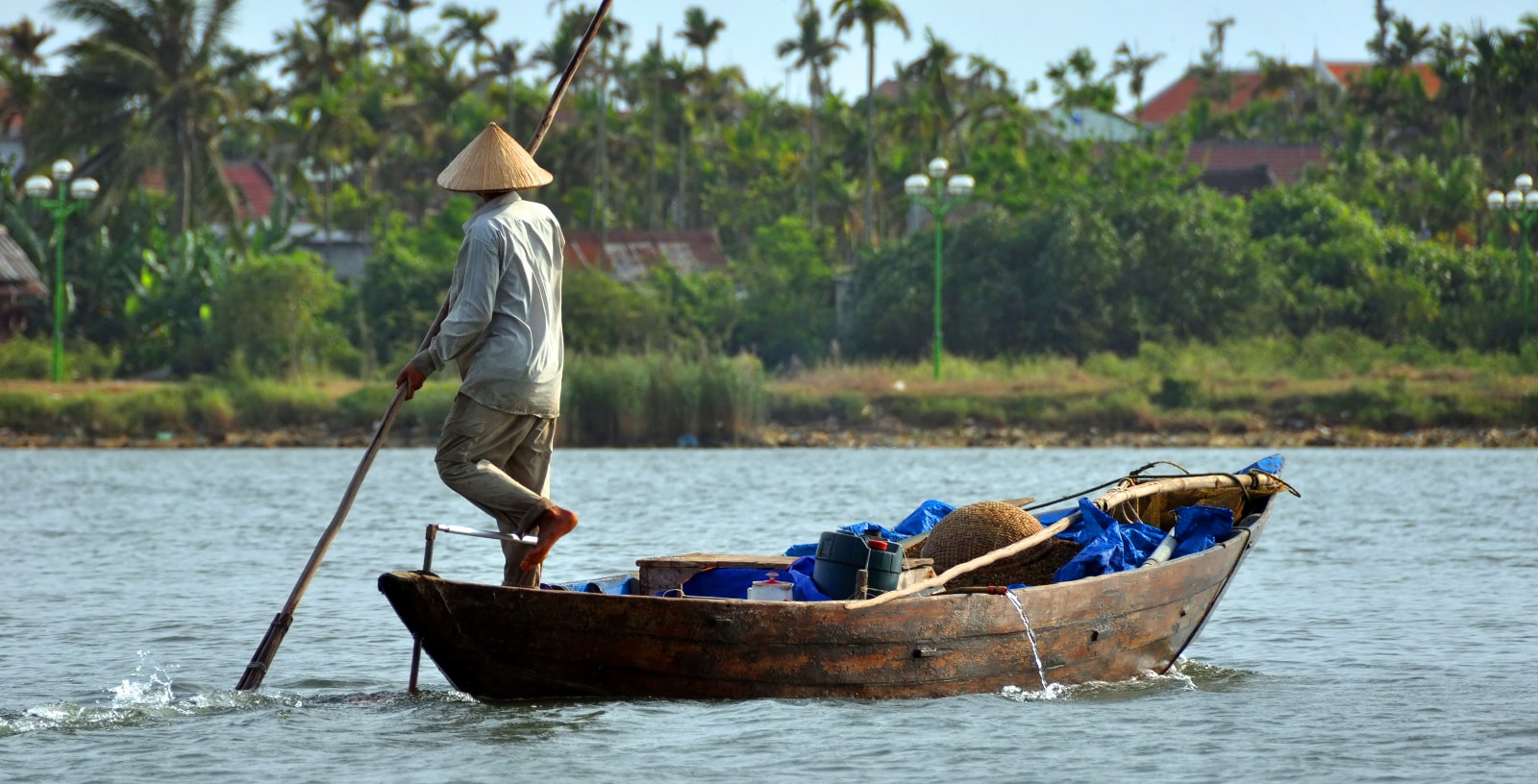WATER
World Water Day 2024: Water for Peace
MARCH 22, 2024
Elisa Ynaraja Rodríguez
Hydraulic Engineer at IDOM
 The theme of this year’s World Water Day is “Water for Peace”, but what is the relationship between water and peace? Before addressing this issue, it is important to highlight the definition of the concept of “peace” given by Pedro Arrojo Agudo, Special Rapporteur on the human right to safe drinking water and sanitation, who states that peace is more than the mere absence of conflict, but embodies a broader concept that refuses violence, injustice and social inequality (Arrojo Agudo, 2023)[1]. Central to this vision of peace is the recognition that prosperity and stability depend on equitable access to water, an essential resource and recognized as a human right.
The theme of this year’s World Water Day is “Water for Peace”, but what is the relationship between water and peace? Before addressing this issue, it is important to highlight the definition of the concept of “peace” given by Pedro Arrojo Agudo, Special Rapporteur on the human right to safe drinking water and sanitation, who states that peace is more than the mere absence of conflict, but embodies a broader concept that refuses violence, injustice and social inequality (Arrojo Agudo, 2023)[1]. Central to this vision of peace is the recognition that prosperity and stability depend on equitable access to water, an essential resource and recognized as a human right.
However, we are currently facing a global water crisis, fueled by a convergence of pressing challenges. Rapid population growth, urbanization, and the intensification of industrial and agricultural activities are collectively straining our limited water resources. Climate change is exacerbating these growing pressures, causing more frequent and severe droughts and floods. All of these combined pressures are pushing many regions into water insecurity. Statistics show that about half of the world’s population suffers from severe water scarcity for at least part of the year (IPCC, 2022)[2], while a staggering 2.2 billion people lack access to safe drinking water (OMS/UNICEF, 2023)[3].
This precarious situation can trigger conflict and exacerbate tensions as competition for existing water sources increases. Unequal access and disputes over transboundary waters are common sources of tension; “transboundary waters account for 60% of the world’s freshwater flows” (UN Water, 2023)[4], and “only 24 countries report that all of their transboundary basins are covered by cooperation agreements” (UN Water, 2021[5]. It is not surprising, therefore, that competition and disputes over the management and use of water resources arise, creating tensions and exacerbating geopolitical rivalries. One explanation is that this stems from our perception of water as a divisible and controllable economic resource. This perception not only fuels and drives conflict, but also leads to the degradation of aquatic ecosystems (which in turn increases water insecurity). Here is the link between water and peace.
To break out of this cycle, a paradigm shift is essential. To protect and conserve water, it is necessary to move from viewing and managing water as a resource to ecosystem-based approaches, accompanied by a human rights perspective. Ecosystem-based approaches provide a holistic perspective that does not focus solely on human needs, but on the interconnectedness of water systems and the natural environment. By prioritizing conservation, restoration and sustainable development, these approaches recognize the inherent link between ecological systems and human well-being.
For us at IDOM, we have a role to play in all of this by adopting and promoting ecosystem-based approaches to water management. Drawing on our expertise in water resources management, infrastructure design, water treatment technologies and efficiency improvements, we should strive to integrate ecosystem considerations into our work. This must be achieved through holistic assessments that consider whole ecosystems rather than individual components, ensuring collaboration with all stakeholders and consideration of all viewpoints, recognizing the dynamic nature of ecosystems through the application of adaptive management practices, and promoting nature-based solutions to improve water quality and quantity. As IDOM, we should strive to apply ecosystem-based approaches that prioritize sustainability and resilience.

This brings with it some important considerations. The first is that effective ecosystem-based management requires interdisciplinary collaboration; it is essential to have experts from diverse fields, integrating multiple perspectives and fields of knowledge. A long-term perspective is necessary, as it is essential to prioritize sustainability over short-term gains. Recognizing the importance of local context and indigenous knowledge in understanding ecosystems and water management practices is critical. Finally, effective ecosystem-based approaches require supportive policy and governance frameworks at local, national and international levels. We at IDOM must advocate for policies that prioritize ecosystem conservation, promote sustainable water use, and incentivize ecosystem-based approaches.
Since water is essential for life, access to clean water is considered a fundamental human right. It is therefore obvious that prosperity and peace depend on water. By adopting ecosystem-based approaches to water management, we can contribute to its protection and conservation, in turn contributing to the promotion of peace.



